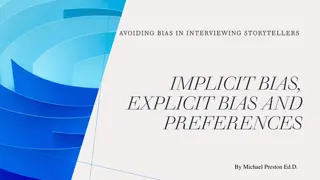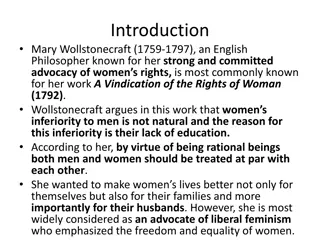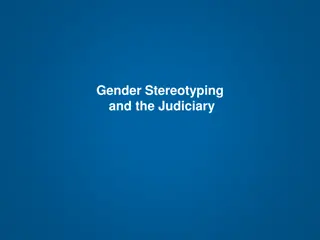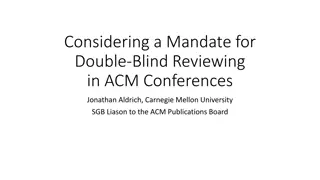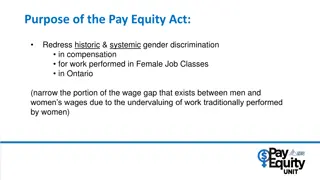Understanding Hammurabi's Code: Rich vs. Poor, Men vs. Women, and Biases
Explore the ancient laws of Hammurabi's Code and analyze how they differentiated punishments based on social status and gender. Learn about the biases of King Hammurabi and how they influenced the legal system he established in Mesopotamia. Delve into the historical context to understand the unequal treatment of the rich and poor, as well as men and women, under this ancient legal code.
Download Presentation

Please find below an Image/Link to download the presentation.
The content on the website is provided AS IS for your information and personal use only. It may not be sold, licensed, or shared on other websites without obtaining consent from the author. Download presentation by click this link. If you encounter any issues during the download, it is possible that the publisher has removed the file from their server.
E N D
Presentation Transcript
Aim #8: Just how just was Hammurabi s Code? Homework: Finish reading the play about Hammurabi s Code and answering the three questions that follow if you do not complete this work in class. Study for Wednesday s Unit #1 test. Optional review sheet also due Wednesday.
I. Rise of Hammurabi A. In 1792 B.C. Babylonian king Hammurabi conquered the Sumerian and Akkadian city-states and established an empire in Mesopotamia.
I. Rise of Hammurabi B. Hammurabi s Code: Written code of laws. Based on the idea of retribution ( an eye for an eye and a tooth for a tooth ). Punishments varied according to social status (the rich were punished less harshly than the poor), and gender (men had more rights than women).
Excerpts from Hammurabis Code If a nobleman put out the eye of another nobleman, his eye shall be put out. If he put out the eye of a [commoner], or break the bone of a [commoner], he shall pay one [silver] mina. Explain this passage in your own words. How does this passage show that the rich were treated better than the poor under Hammurabi s Code?
Excerpts from Hammurabis Code If a man's wife, who lives in his house, wishes to leave it : if her husband offer her release, she may go on her way, and he gives her nothing as a gift of release. If her husband does not wish to release her, and if he take another wife, she shall remain as servant in her husband's house. Explain this passage in your own words. How does this passage show that men were given more rights than women under Hammurabi s Code?
Bias Like many historical figures and historians, Hammurabi was biased. When you are biased, you have a particular point of view, agenda or political/cultural beliefs that influence what you think and write. What biases do you think Hammurabi (a wealthy male king) had about rich people and women? How could this have influenced the laws that he wrote?
Hammurabis Biases He was a wealthy king who came from the upper class therefore his laws were biased in favor of the upper classes.
Hammurabis Biases Hammurabi grew up in patriarchal society (a society where men are seen as superior to women and have most of the political and social power). As a result, he was biased in favor of male superiority, and this was reflected in the laws he wrote.
Period 1 Teams Luna Nick Connor Sofia T Izzy Keira Meli Andrew Avery Vincent Sofia D Frank Sofia G Peter Karen Logan Cailey James Ava Karyna Claire - Kayra Anthony Tiffany Bianca
Period 5 Teams Kyra Bill Catherine Ryan Eric Caroline Lin Theo Liam Katelyn Avery Anna Nacer Samantha Maddy Harry Allen Chris Cal Mirei
Period 9 Teams Elyas Paige Caitlin Speed Patrick Emilie Liam Brigid Marissa Alex Julia Christian W Grace Kevin Z PJ Jamie Anthony Olivia Anderson Christian R
Questions on the Reading Which argument in the play did you agree with more: Nasira s or Nabushum s? Why? Even though Hammurabi s Code seems harsh by today s standards, why is it still considered a turning point in human history? Are there any similarities between Hammurabi s Code and laws in the United States today? What are the differences?




